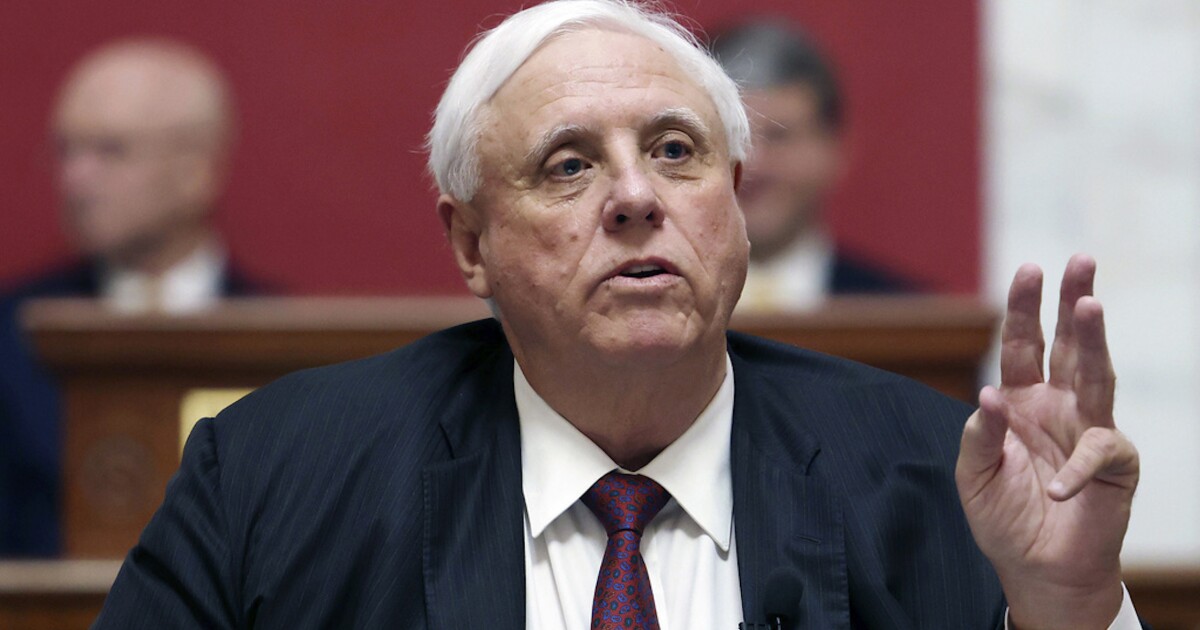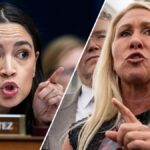

Gov. Jim Justice’s (R-WV) latest financial disclosures reveal that his business empire is producing little to no liquid assets, raising questions about the former billionaire’s ability to financially contribute to his Senate campaign.
Justice, who is seeking Sen. Joe Manchin’s (D-WV) coveted seat next year, has faced years of scrutiny over his well-documented financial and legal woes. The governor’s family business owns 147 companies, including coal mines, processing facilities, agricultural companies, and the landmark Greenbrier Resort in his home state.
BIDEN ADMINISTRATION OUTLINES RULES FOR INSTANT EV REBATES TO BOOST SALES
Once described as the state’s richest man, Justice’s net worth rose to its highest point in 2009 when he was valued at $1.7 billion. That number has since plummeted to somewhere between $400 million and $500 million, the result of scores of lawsuits and an accumulation of nearly $1 billion in debt.
Justice stated in a personal financial disclosure in late September, submitted 134 days past the Senate Ethics Committee’s candidate filing deadline on the first day a fine would be imposed, that his assets were valued between $37.5 million and $1.9 billion.
Despite this, Justice reported having between $34,006 and $161,001 in bank deposits across all personal, spousal, and joint bank accounts. He and his wife also reported only earning a combined income of between $24,609 and $72,000 from just nine of their 147 assets, according to the PFD. The Justices listed between $1,918,013 and $4,045,000 in real estate assets in the disclosure, including 13 residential and unimproved land units.
The PFD also makes note of some of the governor’s significant debts, with $37.5 million to $108.1 million in liabilities reported.
A spokesman for Justice’s Senate campaign did not respond to the Washington Examiner’s request for comment on the filing, which was submitted as the governor faces a costly primary fight ahead of what could be the most expensive race in Senate history.
Speaking to reporters late last month, Justice acknowledged he had a liquidity issue but denied any notion of financial or business impropriety.
“You’ll see a family that has worked really, really hard. There’s no big, gigantic pots of gold sitting around,” Justice said. “Absolutely, at the end of the day, you can see that. From there, you can see a family that sometimes are a little late on a bill here and there and everything, but we pay them, don’t we?”
The Democrat-turned-Republican also defended his approach to addressing his financial troubles, arguing he was protecting vulnerable parties by not declaring bankruptcy.
“Boy, would it have not been an easy way out to just declare bankruptcy? Stiff a whole bunch of people, banks, lenders, vendors, and everything else, cleanse everything, and go on down the road,” he explained. “But we didn’t do that simply because of one thing: I don’t believe in it.”
Justice is currently facing Rep. Alex Mooney (R-WV) in the contest to be the GOP nominee in next year’s Senate race. Mooney, who launched his Senate bid late last year, has the backing of the well-funded Club for Growth. The group has spent months attacking Justice over his substantial debt and allegations of stiffing employees, creditors, and others in an attempt to boost Mooney’s candidacy.
The primary contest will not be cheap for Justice despite him polling well ahead of Mooney, who raised more than $13.5 million in the second quarter of this year through the Club and a separate super PAC.
What the general election will look like hinges on the primary and on Manchin, who says he won’t decide whether he’ll seek reelection until the end of this year. The two-term senator is the only Democrat who polls competitively in the deep red state, and Justice is the sole candidate who polls ahead of Manchin.
The race will be the most expensive Senate contest of the year for both parties if Manchin opts to seek a third term, with each side viewing the seat as the top target of the cycle.
Should the governor not be able to self-fund his campaign, he’ll need a strong and committed donor network and considerable resources from the National Republican Senatorial Committee, the party’s Senate campaign arm.
CLICK HERE TO READ MORE FROM THE WASHINGTON EXAMINER
Senate Minority Leader Mitch McConnell (R-KY) and Sen. Steve Daines (R-MT), who is chairing the NRSC this cycle, have promised Justice that he’ll have those resources in this race.
Still, the men must ration some of their funds to ensure other battleground races are competitive. In addition to West Virginia, McConnell and the NRSC are heavily investing in Montana, Pennsylvania, and Ohio as part of their strategy to retake the Senate majority.





